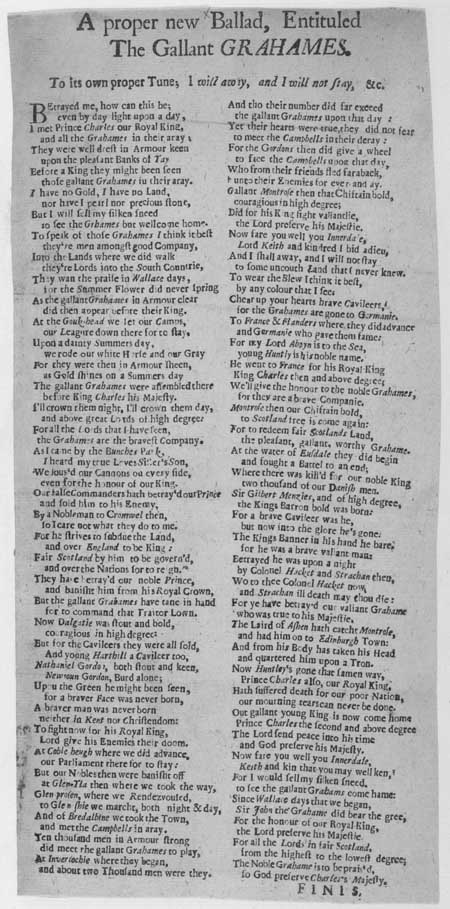Commentary
Verse 1: 'Betrayed me, how can this be; / even by day light upon a day, / I met Prince Charles our Royal King, / and all the Grahames in their array; / They were well drest in Armour keen / upon the pleasant Banks of Tay / Before a King they might been seen / those gallant Grahames in their array.' This ballad was to be sung 'To its own proper tune; I will away, and I will not stay, &c'. 'The Gallant Grahames' celebrates the role of the Graham family in defending the Stewart succession in Britain during the seventeenth century. The hero of the poem is James Graham, 1st Marquis of Montrose, who fought for Charles I's forces against the English Cromwellian and Scottish Covenanting armies, and who was executed in 1650. After the restoration of Charles II in 1660, Montrose's corpse was exhumed and he was given a state funeral. The ballad can be dated to after these events. Early ballads were dramatic or humorous narrative songs derived from folk culture that predated printing. Originally perpetuated by word of mouth, many ballads survive because they were recorded on broadsides. Musical notation was rarely printed, as tunes were usually established favourites. The term 'ballad' eventually applied more broadly to any kind of topical or popular verse.
View Transcription | Download PDF Facsimile
|
 |
Probable date of publication:
1650 shelfmark: Ry.III.a.10(005)
 View larger image
View larger image
|


